Hamas' hardline stance on Israeli-Palestinian tensions and accusations surrounding Muslim holy sites have led to the armed group's attacks on Israel.
On October 7, the Hamas militant group launched about 5,000 rockets at Israeli cities, while organizing many infiltrations deep into enemy territory by sea, land and paragliding. The group's leader declared today the beginning of "the biggest war to end the occupation" in Palestine. Israel has declared a state of war and launched retaliatory strikes.
Israeli emergency medical services said at least 70 people were killed and hundreds injured. Palestinian health authorities said on the same day that Israeli retaliatory strikes had left 198 dead and more than 900 injured. This was the most serious escalation in years of the conflict between Israel and Palestinian independence forces.
Mohammed Deif, the military leader of Hamas, called on all Palestinians to join "Operation Al-Aqsa Storm" and said Palestine could no longer endure the Israeli occupation. "We are prepared for all scenarios. We are ready to respond if the Israeli army enters," Saleh al-Arouri told Al Jazeera , accusing the Israeli army of having long planned to invade the Gaza Strip and the West Bank.
Hamas said the Israeli army and security forces "committed crimes" in Palestinian territory, especially the Muslim holy site of Al-Aqsa in Jerusalem.
The origins of the Israel-Palestine conflict. Video: Vox
Al-Aqsa Mosque, where Muslims believe the Prophet Mohammed ascended to heaven, is located in the Old City in East Jerusalem. During the 1967 Six-Day War, Israel captured East Jerusalem, establishing physical control over the entire city.
Israel has since considered all of Jerusalem as its undivided capital. However, international law considers East Jerusalem, the West Bank, the Golan Heights and the Gaza Strip to be occupied territories, according to United Nations Security Council resolutions, despite objections from the Israeli government.
Hamas is an acronym for Harakat al-Muqawama al-Islamiyya in Arabic, meaning Islamic Resistance Movement. The group was formed in 1987 after the first Palestinian intifada broke out against the Israeli military's occupation of the West Bank and Gaza Strip.
Hamas initially carried out both an armed struggle against Israel and a social welfare program for Palestinians. But since 2005, when Israel withdrew its troops and settlers from the Gaza Strip, Hamas has become involved in Palestinian politics. They won the Palestinian parliamentary elections in 2006 and have controlled Gaza since 2007.
Hamas's goal is to establish an Islamic Palestinian state on the territory designated before 1948. The movement sees the only way to achieve its mission as a violent struggle, thus rejecting any peaceful solution and not recognizing the state of Israel. Hamas is politically and strategically opposed to President Mahmoud Abbas' Fatah movement in the West Bank, which is internationally recognized as the official Palestinian Authority.
The organization is currently divided into two branches, the Dawah, which is in charge of the civilian sector, and the Izz ad-Din al-Qassam, which is in charge of the military sector. Hamas members hold a majority in the Palestinian parliament, although the government is still controlled by President Abbas's Fatah party. Hamas and Israel have clashed several times in the past 15 years.
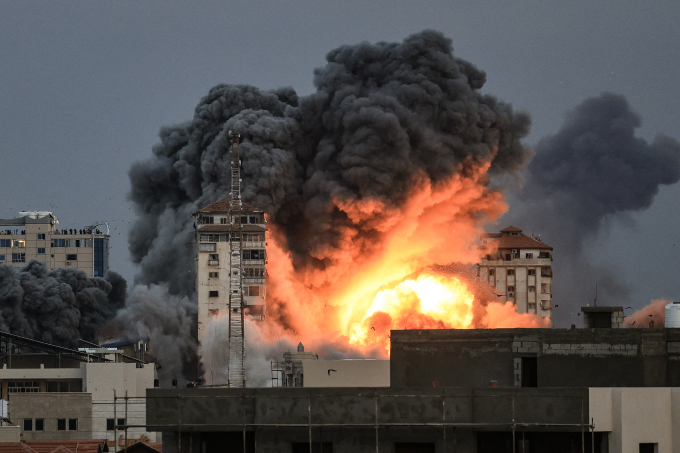
Smoke rises in Gaza after Israel's retaliation on October 7. Photo: AFP
Salah Arouri, the exiled deputy leader of Hamas, explained the group's new campaign as a response "to the crimes committed under the occupation." He asserted that this was a campaign to protect Al-Aqsa mosque and thousands of Palestinian prisoners held by Israel.
Over the years, Israel has increased its control over the Al-Aqsa mosque compound, restricting Palestinian access to the holy site, and conducting numerous violent raids to arrest targets it deems dangerous or to disperse activities it deems extremist.
Arab media reported that the Israeli government has recently cracked down on Palestinian Muslims in Jerusalem, allowing some far-right Jewish groups to access the Al-Aqsa mosque complex. This political group has declared since 1967 its desire to take full control of the area, demolish historic Muslim structures and build a Jewish temple.
Al-Aqsa Mosque is considered the third holiest site in the world for Muslims, while Jews believe the site contained two ancient Jewish temples.
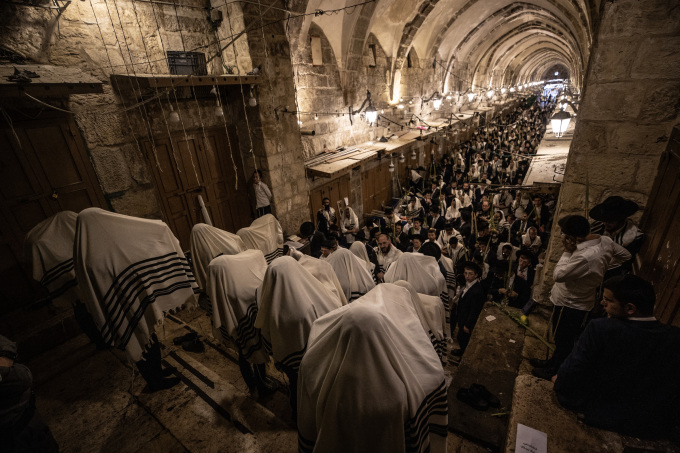
Far-right Jewish worshippers stormed the Al-Aqsa mosque compound in East Jerusalem on October 4. Photo: Anadolu
Israel and Egypt have tightly controlled their borders with the Gaza Strip in recent years to prevent Hamas from smuggling weapons into the area. However, both countries' policies have led to a humanitarian crisis in the Gaza Strip, making it difficult for civilians in the area to access basic necessities, water and food.
Palestinians in the West Bank and Gaza Strip have repeatedly accused Israel of making their lives difficult, especially through its military checkpoints and its strategy of gradually acquiring land for Jewish settlers. Tel Aviv, meanwhile, has always insisted that its security measures are adequate to counter the constant threat from Hamas and other forces that do not accept the existence of a Jewish state.
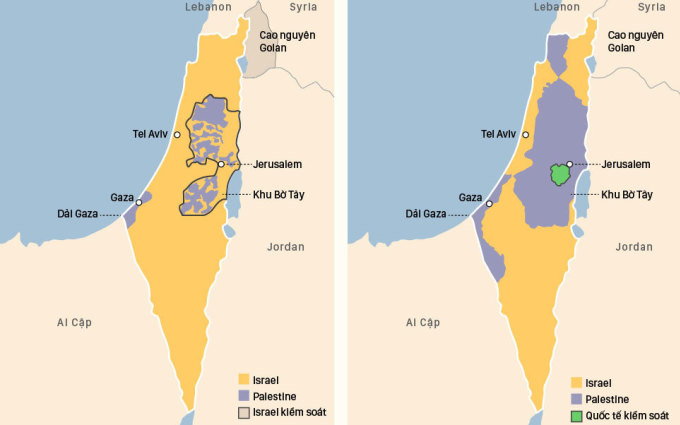
The current Israeli-Palestinian territory (left) and the one proposed by the United Nations in 1947. Graphics: Viet Chung
According to Al Jazeera , Hamas' campaign also aims to send a political message to Arab and Muslim countries that are moving towards normalizing relations with Israel. By launching an unprecedented attack that has caused Israel to react strongly and prolong the war, Hamas forces the Arab world to continue to consider the "Palestinian cause" in its foreign policy and relations with Israel.
The United Arab Emirates (UAE) and Bahrain signed an agreement in 2020 to end their confrontation with Israel and normalize relations. The Israeli government is also pushing for normalization talks with Saudi Arabia, with the United States acting as a mediator.
"We want the international community to stop the crimes that are being committed in Gaza, the crimes against the Palestinian people and the violation of holy sites like Al-Aqsa. That is why we started this war," said Khaled Qadomi, a Hamas spokesman.
The militant group that controls the Gaza Strip said it had issued a message calling on "resistance fighters in the West Bank" and "Arab and Muslim countries" to join the fight.
Thanh Danh (According to Al Jazeera, DNA India, Reuters )
Source link


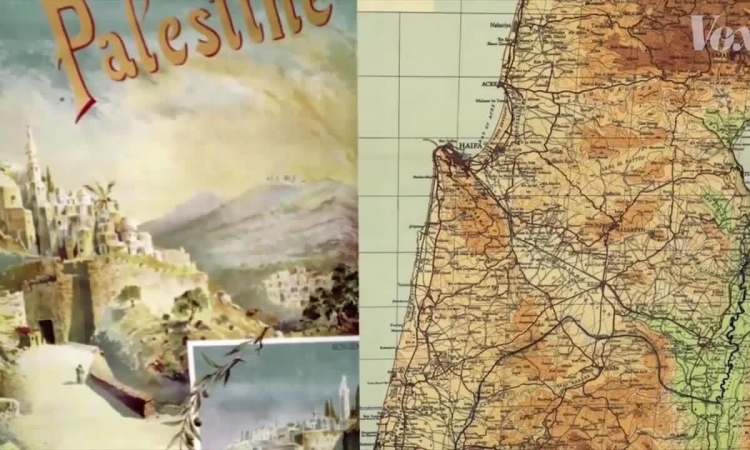
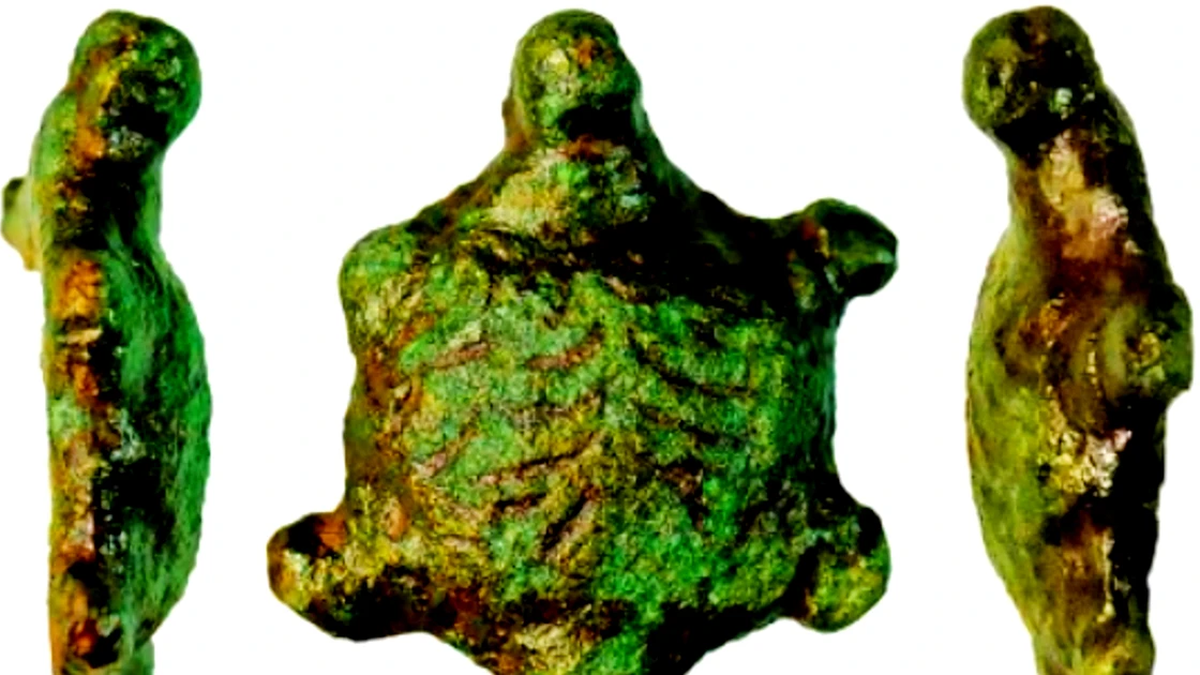































































































Comment (0)